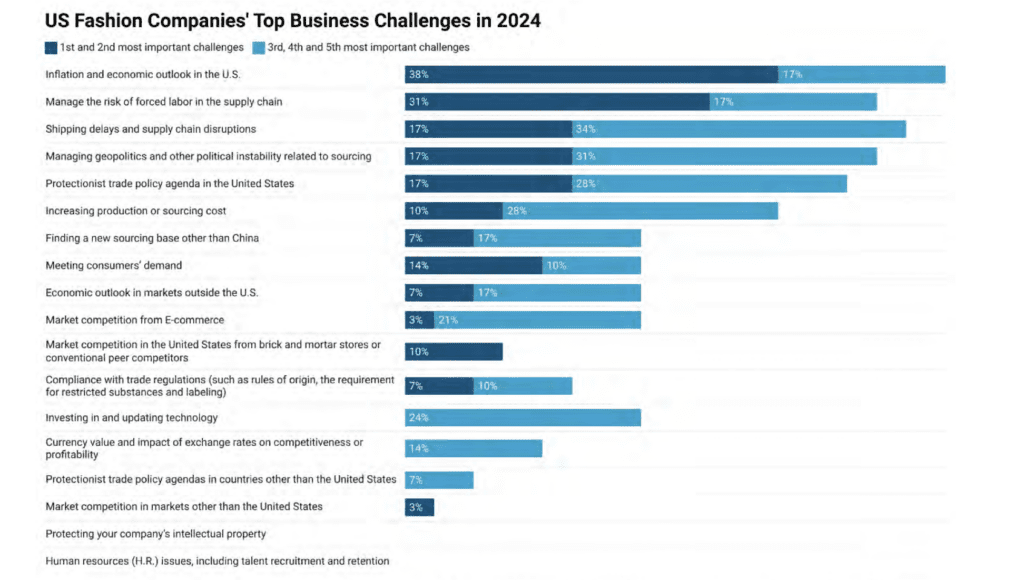Fashion industry executives point to forced labor, an uncertain economy, shipping and supply chain disruptions, and rising geopolitical tensions as among their key concerns this year, according to a new survey. They also cite the growing costs that stem from – and concerns about compliance with – the rise in sustainability-centric regulations in the European Union and beyond, with no shortage of respondents revealing that their companies are devoting greater resources to “sustainability and social compliance” related efforts.
In furtherance of its eleventh annual “Fashion Industry Benchmarking Study,” the U.S. Fashion Industry Association (“USFIA”) sought to gauge the business outlook, sourcing practices, and trade policy views of fashion industry executives. After surveying executives from 30 leading U.S. fashion brands, retailers, importers, and wholesalers between April and June of this year, the USFIA identified the top five business challenges facing companies in the fashion segment in 2024 as: (1) inflation and economic outlook in the United States; (2) managing the forced labor risks in the supply chain; (3) shipping delays and supply chain disruptions; (4) managing geopolitics and other political instability related to sourcing; and (5) the protectionist trade policy agenda in the U.S.

Delving into these findings, the USFIA stated …
> Inflation and economic outlook in the U.S. – This is a key concern for “nearly 40 percent of respondents,” which the USFIA says “far exceeds other concerns.”
> Managing forced labor risks in the supply chain – This ranked as the second top business challenge in 2024, with nearly half of respondents rating the issue as one of their top five concerns. “Notably, forced labor-related trade enforcement has been a priority for U.S. government agencies regarding textiles and apparel products since implementing the Uyghur Forced Labor Prevention Act (“UFLPA”) in June 2022,” according to the USFIA. Respondents broadly call for “greater transparency in U.S. Customs and Border Protection’s UFLPA enforcement, specifically in shipment detention and release decisions,” and suggest that, among other things, Customs should “focus on ‘bad actors’ only [and] clarify enforcement on recycled cotton.”
This is a short excerpt from a Snapshot that was published exclusively for TFL Pro+ subscribers. Inquire today about how to sign up for a Professional subscription and gain access to all of our exclusive content.











